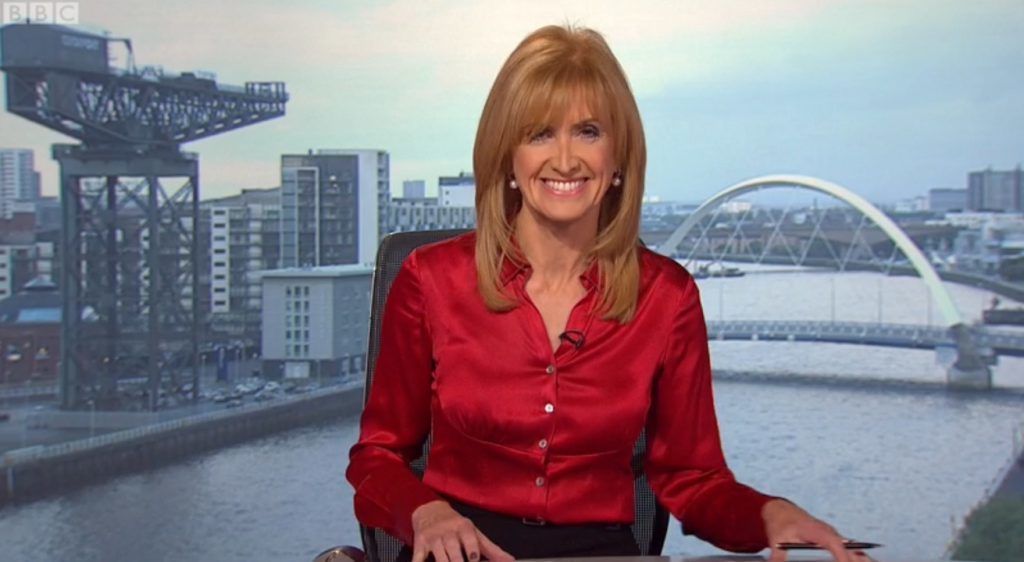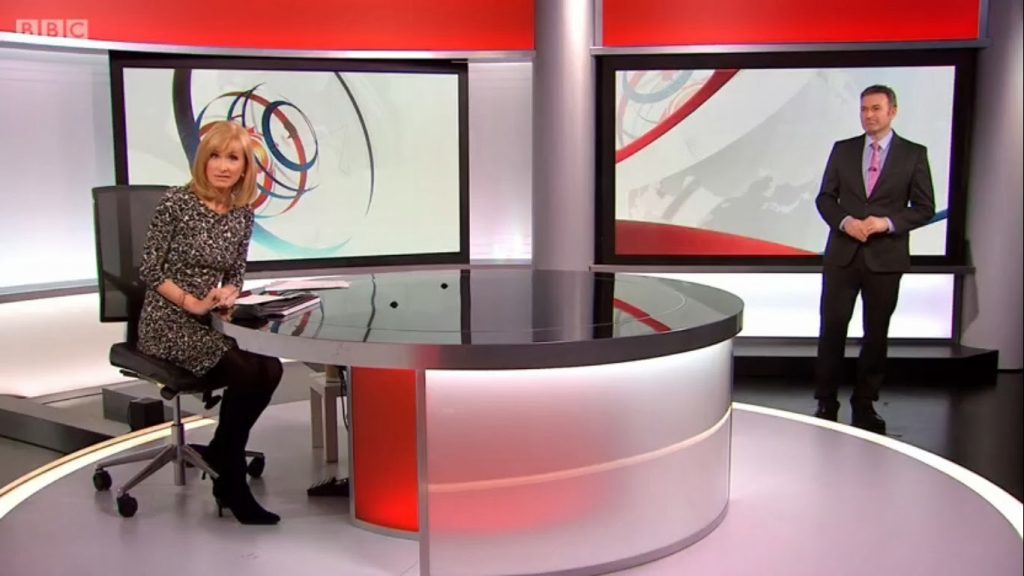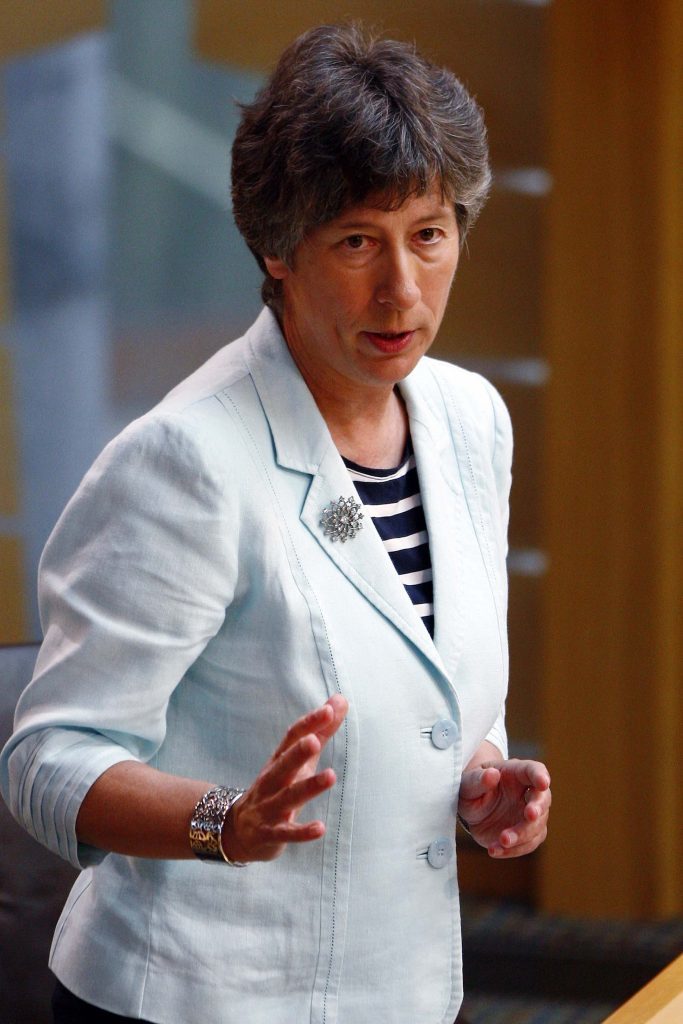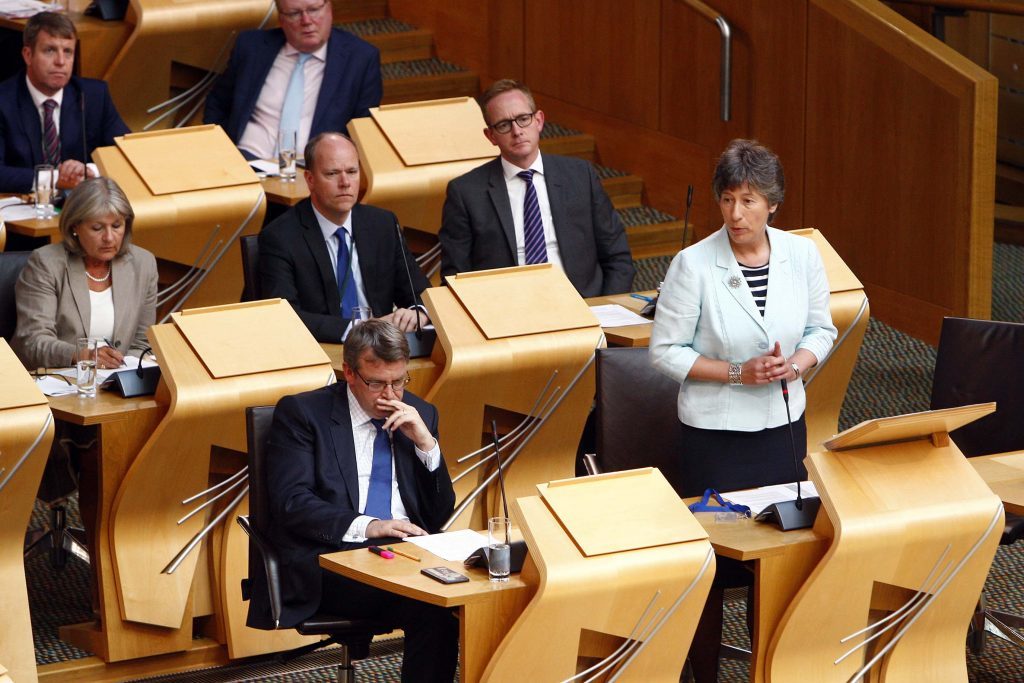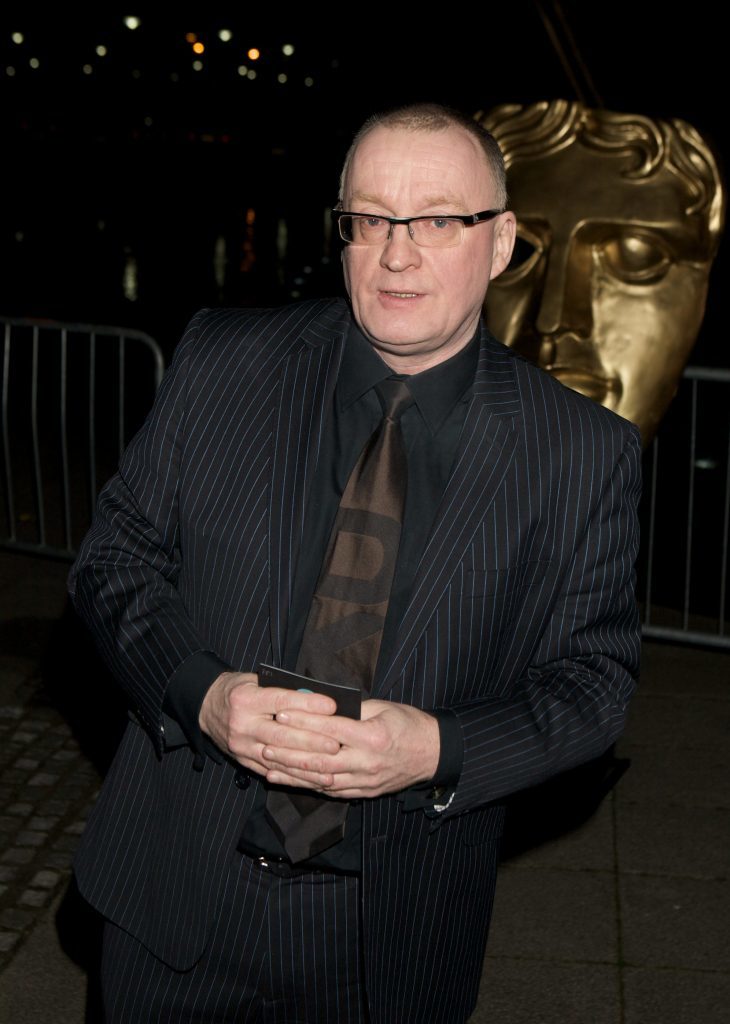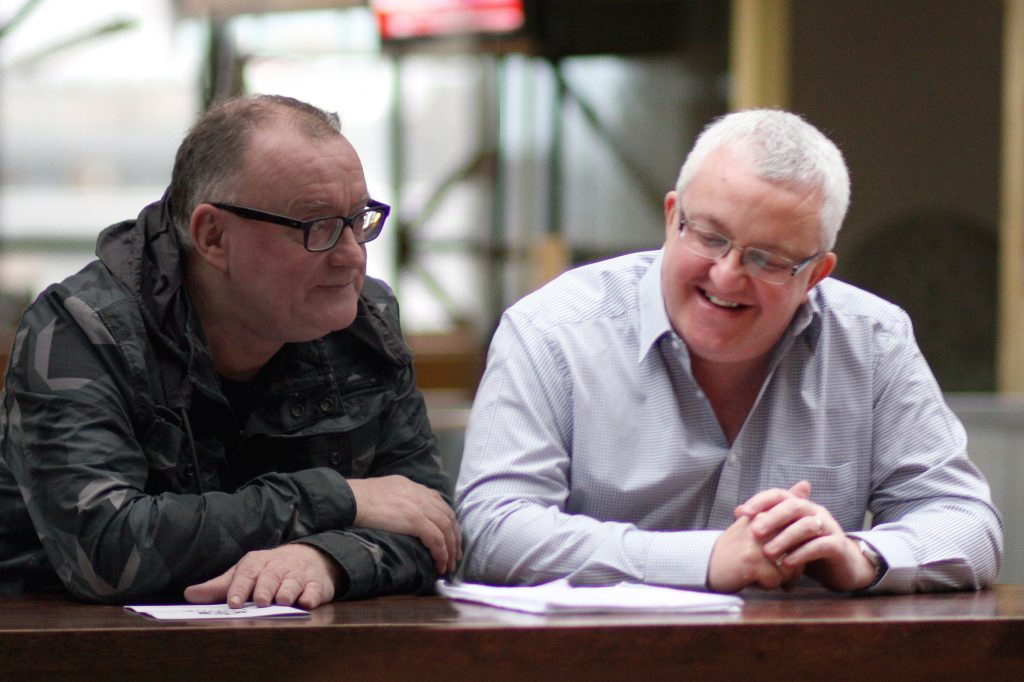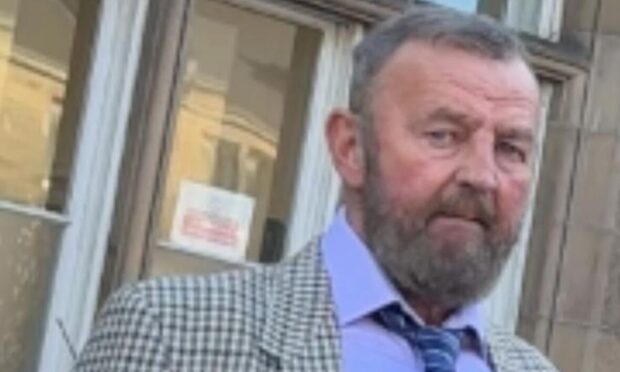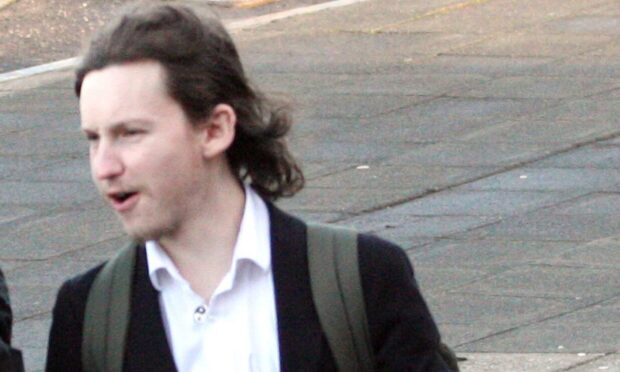As pressure mounts for the BBC to bring in a so-called ‘Scottish Six’ news programme, Michael Alexander speaks to some of those for and against change.
An influential cross-party committee of MPs has recommended that the BBC should press ahead with controversial proposals for a ‘Scottish Six’ nightly news programme which is edited, presented and broadcast entirely from Scotland.
The recommendation by Westminster’s culture, media and sport committee is in response to long-running “dissatisfaction” that the BBC’s main Six O’Clock News programme, anchored in London, often features stories on devolved areas such as education and health which are not relevant to Scottish audiences.
BBC Scotland, which is “exploring a number of possible formats” ahead of a proposed programme revamp later in the year, has already produced pilots for a one-hour programme which could replace Reporting Scotland and the Six O’Clock News in Scotland.
The bulletin carrying international, national and Scottish news would “drive up standards, increase job opportunities for journalists here in Scotland, and build audiences” according to SNP culture and media spokesman John Nicolson MP.
But as of yesterday, a petition set up in March by retired Dumfries and Galloway midwife Georgina Sparrow called ‘Stop the SNP taking control of the BBC’ had attracted more than 15,500 signatures against the plans, which Lord Forsyth recently described as “a descent into inward-looking parochialism”. A recent YouGov opinion poll also recently suggested 60% of Scots were against the proposed change.
The BBC, meanwhile, has staunchly defended its journalistic integrity, emphasising that it always strives to “remain free from undue political interference”.
Here, two high profile Courier Country campaigners with different opinions give their views on the ‘Scottish Six’ proposals:-
AGAINST – Mid Scotland and Fife Conservative MSP Liz Smith
Conservative Mid Scotland and Fife Conservative MSP Liz Smith warned earlier this year that a ‘Scottish Six’ news bulletin must continue to provide a “strong focus” on UK and international affairs – and yesterday she said she did not believe the arguments for change had been made.
She said some “key principles” must be at the heart of the debate about whether or not there should be a BBC Scottish Six.
Firstly, what future structure should the BBC adopt in order to secure top class broadcasting and its ability to remain at the cutting edge of an increasingly competitive and global digital market? Secondly, what structure will produce the right blend of Scottish, UK and international news that avoids any concern about insularity or political interference, and, thirdly what does the audience in Scotland actually want?
Discussions
“Let me take each in turn,” she says. “At Holyrood and at Westminster, there have been interesting discussions which make clear that the BBC itself believes that it has to take on board new ideas if it is to respond to devolution and increasingly diverse audiences across the UK and to the technological changes which have thrown significant challenges into the pathway of all broadcasters.
“Economies of scale matter as does the ability to attract world class media talent and there is an argument that these will come more easily if we do not diminish the UK scope of the BBC.
“Secondly, it is essential that we do not become more insular in our approach. We need a news programme that competes for the BBC’s top national and international presenters and, above all, we need to remove the scope for the BBC to become a political football.
“I remember only too well what it was like being a member of Holyrood’s education and culture committee in 2011-12 when the parliament seemed to be locked in permanent combat with the BBC, and party politics dominated the whole debate.
“That is not acceptable and that is why the First Minister must adhere to the principles of what she replied to me at First Minister’s Questions on March 3 this year; namely that the BBC must be fully independent of governments and politicians.
Polls
“And so to what people in Scotland really want; there have been several polls and consultations and, to date, and, judging by the public mood, I do not believe the case has been made for a Scottish Six.
“Many viewers appear happy with the current set-up and believe that we get a better Scottish, UK and international perspective because of it. They certainly do not want any situation whereby they might lose some key aspects of news or indeed any programmes which have top ratings in Scotland.
“Above all, people want, and deserve, to be served by first rate broadcasters. Let’s examine what the culture committee has said and ensure that the decision taken is based in hard evidence and not on political rhetoric.”
FOR – Journalist and broadcaster Stuart Cosgrove
Perth-born journalist, broadcaster and TV executive Stuart Cosgrove has worked in the media for almost three decades ranging from his time as media editor of NME and The Face in the 1980s, to serving as Controller of Arts and Entertainment with Channel 4.
The die-hard St Johnstone fan, who is probably best known in Scotland as co-host of BBC Radio Scotland’s popular comedy football phone-in Off the Ball, and for his contributions to BBC Scotland’s Media Show, is a well-known supporter of Scottish independence.
But he says his support of a ‘Scottish Six’ news programme is completely independent of his political views and he finds it simply “bizarre” that anyone can argue against Scotland’s flagship news programme not being given more prominence to represent Scotland better.
Extraordinary
“I find it extraordinary that people would want to argue against why their country should not have its own news service,” Stuart, 61, who works with the BBC in a freelance capacity, tells The Courier.
“It’s bizarre. As someone who deals with no end of complex issues and always tries to find the other side of the story, I find it really really hard to work out or understand the arguments against it here.”
Stuart recently guest edited pro-independence newspaper ‘The National’, and used the experience to showcase how on any one day, there was an “endless number of stories that are worth telling for Scotland, about Scotland and tell Scotland’s story within the context of the national and international picture.”
He believes Scotland is a country rich in stories, that Scotland deserves the dignity of a dedicated news service and that television news is failing to connect with younger viewers and needs to address its own shortcomings.
But whilst he suspects there is an element of misguided “cultural cringe” by those against a Scottish Six news programme – that somehow such a programme would be rubbish – he says it’s wrong to suggest the motives for its creation are politically instigated.
“If you look at the history of the arguments for it,” he says, “they predate the Scottish Parliament to the days when the SNP had something like two MPs.
Aspiration
“The idea of a Scottish Six is a long-held aspiration of many people in news journalism in Scotland.
“It was largely a Labour-driven concept back then – a child of the Labour-led devolution process. The then First Minister Jack McConnell was an advocate of it.
“If you look at the Westminster committee which has recommended it happens – it is made up of six Conservative MPs, four Labour and just one SNP. They have unanimously agreed it would be good for Scotland.
“I find it odd that those against it think we couldn’t fill a Scottish Six programme when we do it on radio every day. I think they are misinformed. We should have much greater ambition.”
malexander@thecourier.co.uk
